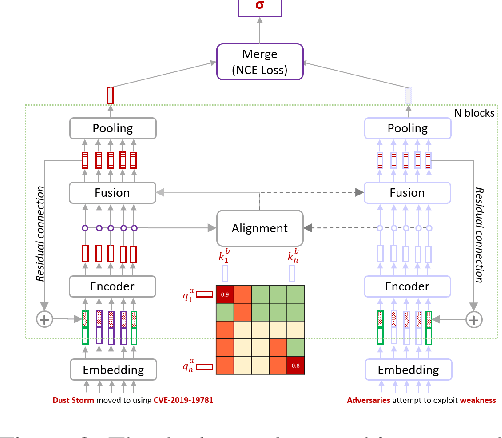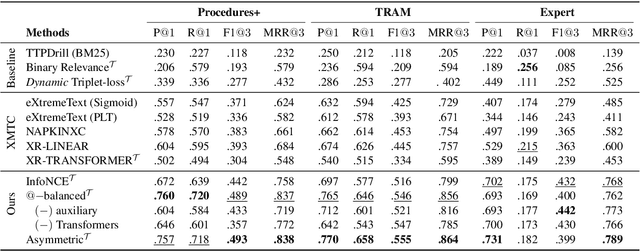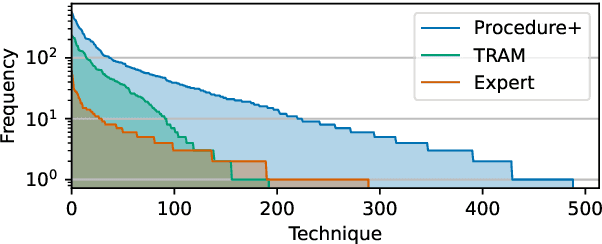Noise Contrastive Estimation-based Matching Framework for Low-Resource Security Attack Pattern Recognition
Paper and Code
Jan 30, 2024



Tactics, Techniques and Procedures (TTPs) represent sophisticated attack patterns in the cybersecurity domain, described encyclopedically in textual knowledge bases. Identifying TTPs in cybersecurity writing, often called TTP mapping, is an important and challenging task. Conventional learning approaches often target the problem in the classical multi-class or multilabel classification setting. This setting hinders the learning ability of the model due to a large number of classes (i.e., TTPs), the inevitable skewness of the label distribution and the complex hierarchical structure of the label space. We formulate the problem in a different learning paradigm, where the assignment of a text to a TTP label is decided by the direct semantic similarity between the two, thus reducing the complexity of competing solely over the large labeling space. To that end, we propose a neural matching architecture with an effective sampling-based learn-to-compare mechanism, facilitating the learning process of the matching model despite constrained resources.
 Add to Chrome
Add to Chrome Add to Firefox
Add to Firefox Add to Edge
Add to Edge